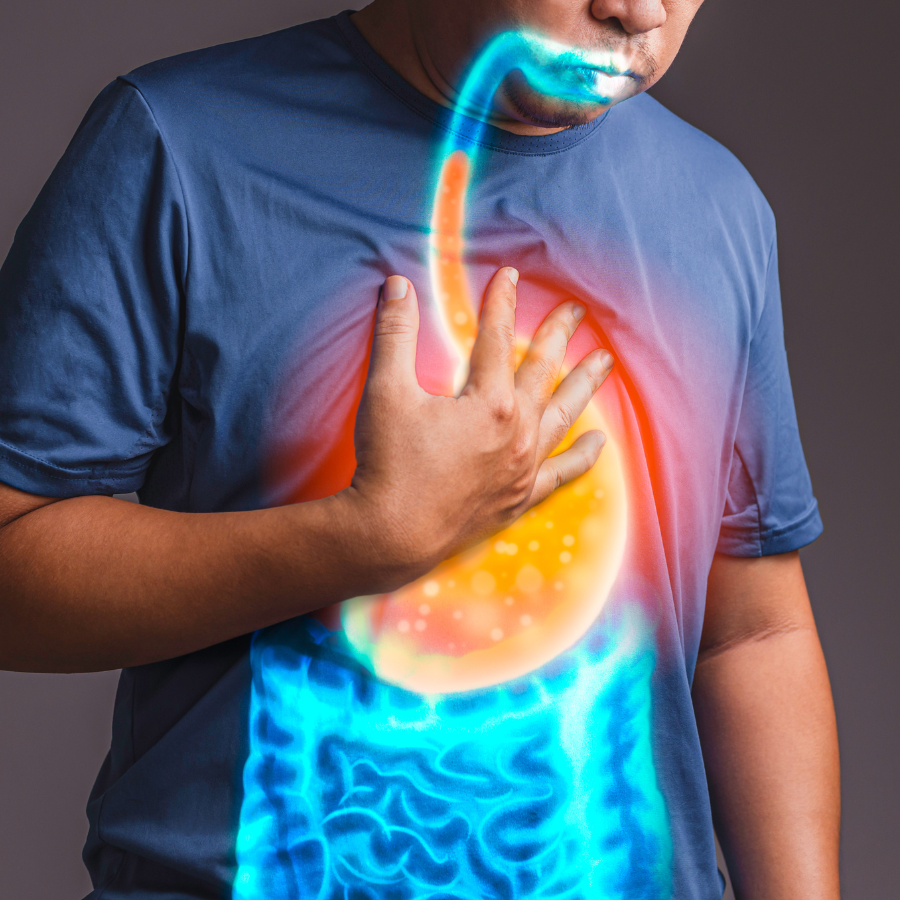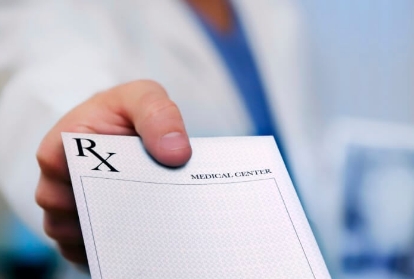Acid reflux, or gastroesophageal reflux disease (GERD), is a medical condition in which stomach acid rises up into the esophagus, causing heartburn, chest pain, difficulty swallowing, and other symptoms. GERD is often caused by a malfunctioning valve between the stomach and the esophagus. When this valve does not work properly, stomach acid can leak back into the esophagus, causing discomfort. While acid reflux is a common problem, GERD is a chronic condition that can be treated with lifestyle changes and medication. In severe cases, surgery may be necessary to repair the damaged valve.
Acid reflux is a condition that affects a large portion of the US population. It is estimated that 20-30% of Americans suffer from acid reflux, and it is on the rise.
While anyone can develop GERD, there are certain factors that may increase one’s risk.
Obesity is a common risk factor for GERD, as excess weight can put pressure on the stomach and cause the contents to back up into the esophagus.
Certain medications – such as beta-blockers, calcium channel blockers, and NSAIDs – can relax the lower esophageal sphincter and lead to GERD.
Pregnancy can also contribute to GERD, as the increasing size of the uterus puts pressure on the stomach.
Gastroparesis, or delayed gastric emptying: In individuals with gastroparesis, food stays in the stomach longer than normal and may back up into the esophagus.
Smoking can weaken the lower esophageal sphincter and contribute to inflammation of the esophagus.
Certain foods – such as fatty foods, spicy foods, citrus fruits, caffeine, and chocolate – may trigger symptoms of GERD by relaxing the lower esophageal sphincter or irritating the lining of the esophagus.
Signs and symptoms that may be related to GERD.
Heartburn is the most common symptom of GERD. It is described as a burning sensation behind the breastbone that can travel up to the throat. Heartburn is often worse when lying down or bending over.
Chest pain may occur if the stomach acids reflux into the esophagus and irritate the lining.
Swallowing difficulty may be a sign of esophageal stricture, which is a narrowing of the esophagus due to damage from stomach acids.
Regurgitation is the feeling of liquid coming back up into the throat or mouth. This may happen with or without heartburn.
Chronic cough or new or worsening asthma may occur if stomach acids come up into the lungs and irritate the airways. Sleep disturbance may be caused by heartburn or chest pain waking someone up at night.
Sleep disturbance may be caused by heartburn or chest pain waking someone up at night.
The sensation of a lump in the throat may be felt if there is irritation of the esophageal lining.
GERD can also lead to bad breath and tooth erosion.
The most important part of diagnosing GERD is taking a thorough medical history. This includes asking about symptoms, when they occur, and what makes them better or worse. The next step is usually a physical exam. This can help to rule out other causes of symptoms such as an ulcer. In some cases, further testing may be required. Endoscopy involves passing a small camera through the mouth and into the stomach. This allows the doctor to directly visualize any damage to the esophagus. A pH probe test measures the amount of acid in the esophagus. Manometry assesses muscle function in the esophagus. An x-ray may also be taken to check for complications such as aspiration pneumonia. With all of this information, the doctor can make a definitive diagnosis of GERD and start appropriate treatment.
There are three types of medications commonly used in the treatment of Acid Reflux: Proton Pump Inhibitors (PPIs), like omeprazole and lansoprazole, and H2 receptor blockers, like famotidine and ranitidine, are two types of medication that can be prescribed to help treat GERD. PPIs and H2 receptor blockers both work by decreasing the amount of acid produced by the stomach. Antacids are another type of medication that can be used to relieve symptoms on an as-needed basis. However, they do not reduce the amount of acid produced by the stomach and are not effective at treating more severe forms of GERD. If you think you may have GERD, talk to your doctor to discuss treatment options. All of these options are available over the counter, while PPIs and H2 receptor blockers also have prescription options. Antacids can provide fast relief but aren’t practical for long-term treatment. PPIs are considered to be the most effective but can take up to 24 hours to start providing relief.
While GERD can be treated with medication, there are also a number of healthy lifestyle modifications that can help to reduce the symptoms of the condition. One of the most important things you can do is to maintain a healthy weight. Excess weight can put pressure on the stomach, which can lead to the regurgitation of acid. Eating smaller meals more often can also help, as this allows the stomach to empty more slowly and reduces the chances of acid being brought up into the esophagus. Avoiding trigger foods such as spicy or fatty foods can also be helpful, as these can aggravate the symptoms of GERD. Lying down or bending over immediately after eating can worsen acid reflux symptoms. Instead, wait at least three hours before lying down or reclining. Finally, quitting smoking and avoiding alcohol are both important lifestyle changes that can help to reduce the symptoms of GERD.

If you have a question about a prescription transfer or ordering from NextRx, we’d love to hear from you.

This will close in 0 seconds